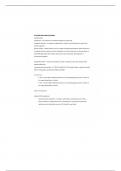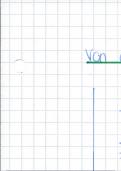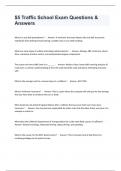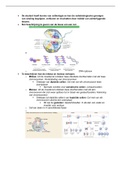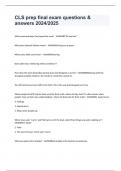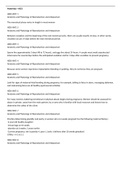Class notes
Biol 105 DNA and it's role in Heredity Notes
- Course
- Bio 105
- Institution
- Queens College
This is a comprehensive and detailed note on Chapter 13; DNA and it's role in Heredity for Biol 105. *Essential Study material!! *For you, at a price that's worth it!!
[Show more]
